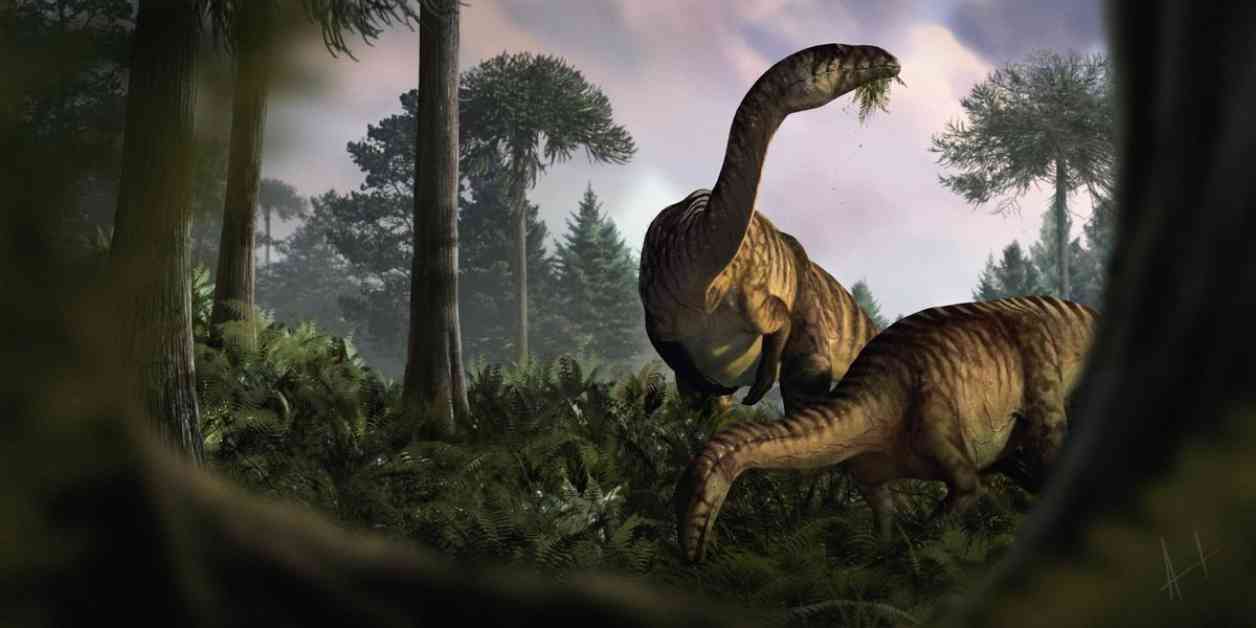Scientists have recently made a groundbreaking discovery regarding the evolutionary success of dinosaurs by examining their vomit and feces. This new study, published in the journal Nature, sheds light on the diets of these ancient creatures and how they outcompeted other animals during their rise to dominance.
According to study co-author Martin Qvarnström, an evolutionary biologist at Uppsala University in Sweden, analyzing bone remains alone is not sufficient to understand the evolution of dinosaurs. By studying fossilized vomit and poop, known as regurgitalites and coprolites, researchers can gain valuable insights into the diet, feeding behavior, physiology, and parasites of these animals.
The research team analyzed over 500 fossilized remains from the Polish Basin, ranging from the late Triassic to the early Jurassic period. What they discovered was a diverse range of foods in the dinosaur fossils, including tiny beetles, fish, bones, teeth, and plant remains. This variety in diet allowed dinosaurs to adapt to changing environments and outcompete their more specialized competitors.
One particularly intriguing find was a piece of vomit containing the skull of a temnospondyl amphibian, a creature that resembled a giant toad. This discovery challenges previous assumptions about what dinosaurs preyed upon. Additionally, the researchers found the bones of a small crocodile in another piece of vomit, further highlighting the diverse diet of dinosaurs.
By combining their findings with historical climate and plant data, the researchers reconstructed prehistoric food webs and tracked how they evolved over time. This analysis revealed that the ability of dinosaurs to consume a wide range of foods played a crucial role in their evolutionary success. It also suggests that dinosaur domination occurred gradually over the late Triassic period, rather than as a result of a single catastrophic event.
Lawrence Tanner, a professor of environmental science systems at Le Moyne College, emphasized that the diversity in dinosaur diets allowed for the evolution of larger carnivores and contributed to their global dominance. The researchers plan to expand their study to other regions to confirm their findings and gain further insights into dinosaur diets.
In conclusion, this study highlights the importance of studying fossilized vomit and feces in understanding the evolutionary success of dinosaurs. By analyzing the diets of these ancient creatures, researchers can uncover valuable information about their behavior, physiology, and ecological interactions. This research not only provides new insights into dinosaur evolution but also contributes to our understanding of ancient ecosystems and the factors that shaped them.










